Barred Owl We Sighted At West Cranberry Tract In Whitby
On a visit to the West Cranberry Tract at Lynde Shores Conservation Area in Whitby, in Ontario, another keen birder pointed out to Bob and me this Barred Owl (Strix varia) perched high in a tree. Completely at ease, it was wiling away the day quite oblivious of the interested observers nearby.
Lynde Shores Conservation Area always seem to be well-populated with birds from a variety of species. Bob and I have never been disappointed by our visits to the area.
Apparently two Barred Owls have been a common presence along the hiking trail at the West Cranberry Tract over the course of the winter. Despite other visits by Bob and me, this is the first time we have spotted one of the resident owls. Can you spot it in amongst the thick branches?
Barred Owls are so-named because they are heavily barred on their heads, necks, tails and flight feathers. The bars on the chest are horizontal; the abdomen is vertically striped with brown. Barred Owls are also referred to as Hoot Owls for their vocalizations that consist of a series of 8-9 baritone hoots.
I am enamoured with owls of any kind. The Barred Owls, in particular, with their rounded heads, big dark eyes and plump bodies, look so cute and cuddly. This Barred Owl was taking its ease in the morning sunshine, probably after a hard night of hunting.
As you see in our video, the Barred Owl seemed to become more alert to the activity around it, daring to open its eyes for a quick peak.
When looking at the Barred Owl from the rear, one can really appreciate the symmetry of the mottled greyish brown feathers combined with those that are buffy white. The tips of the feathers appear to be very delicate.
The tail feathers are horizontally barred like those of the head, neck and flight feathers.
Barred Owls resemble Great Grey Owls but distinguishing features include the barred breast, black eyes and smaller size.
The legs and feet of Barred Owls are covered in feathers right up to the talons. The needle-sharp claws on this owl ensured that it remained secure on its perch.
As Bob and I lingered nearby, I suddenly heard a scurry of noise deeper in the woods. I thought perhaps a deer was approaching; their tracks were evident everywhere in the snow. Instead, a hungry flock of Eastern Wild Turkeys converged on the hiking trail where people were offering bird food.
The Barred Owl turned a blind eye to this feeding frenzy, and that is when Bob and I decided it was time to leave the West Cranberry Tract and head a little further east to the other side of Lynde Shores Conservation Area. The Barred Owl remained content where we found it.
You May Also Like –
Bald Eagles At Deep Bay On Vancouver Island
Great Grey Owl We Sighted Near Ottawa
Red-Bellied Woodpecker Sighting at Lynde Shore
A Tennessee Warbler In My Toronto Backyard
Cow Moose and Calf winter in Algonquin Provincial Park
Eastern Screech Owl: A Master of Disguise In Burlington, Ontario
A Long-eared Owl at Tommy Thompson Park
Glossy Ibis sighted in Whitby, Ontario
An Eastern Towhee at Forks Of The Credit Provincial Park
A Black-backed woodpecker in Algonquin Provincial Park
A Black-billed Cuckoo at Forks of the Credit Provincial Park
Among the Winged Magic at El Rosario Monarch Butterfly Reserve in Mexico
Our South African Journey to Kruger National Park
Our visit to Pinnacle Rock in Mpumalanga, South Africa
Visiting Machu Picchu, Our Long Time Dream
Our Visit To The Floating Islands On Lake Titicaca
Exploring The Cliff Dwellings At Mesa Verde National Park
Drombeg Stone Circle, Our Visit To The Druid’s Altar
Red foxes wintering in Algonquin Provincial Park
Black Bear Mom And Cubs Eat Blueberries In Algonquin Park
Gray Treefrogs at Lower Reesor Pond in Toronto
Scarlet Tanagers at Ashbridge’s Bay Park In Toronto
A Great Blue Heron at Cootes Paradise In Burlington
Black-Crowned Night Herons At Toronto’s Tommy Thompson Park

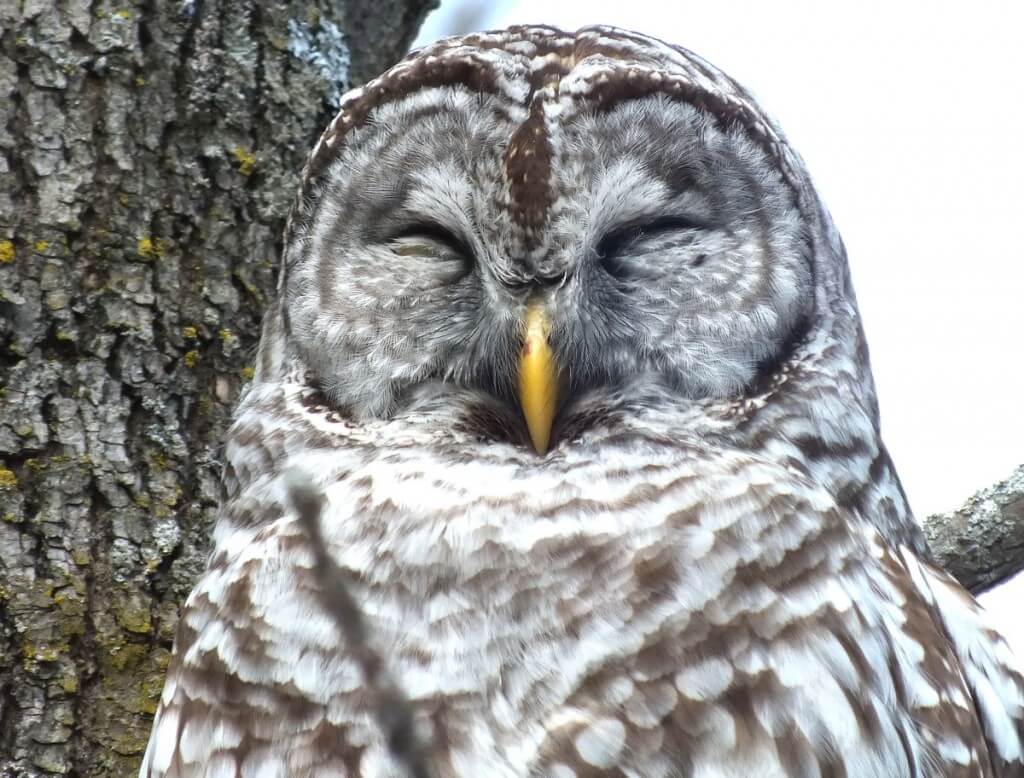

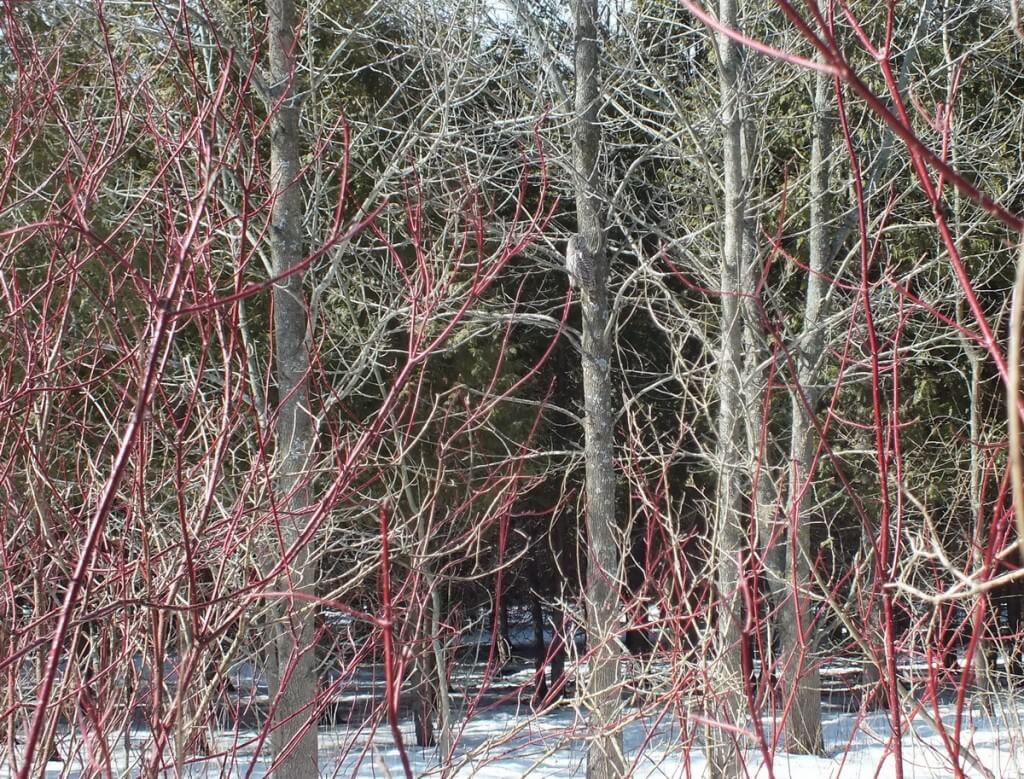
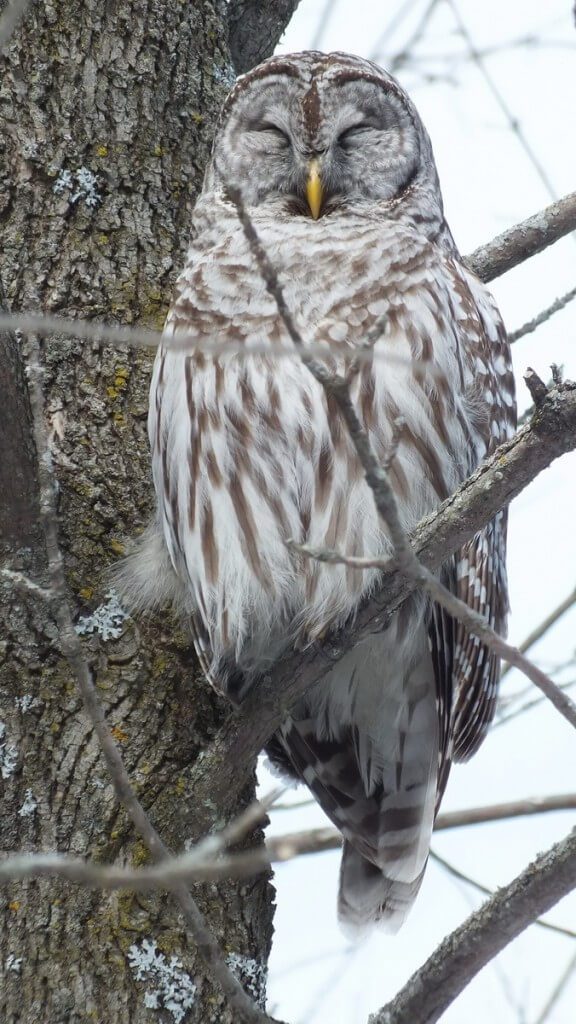

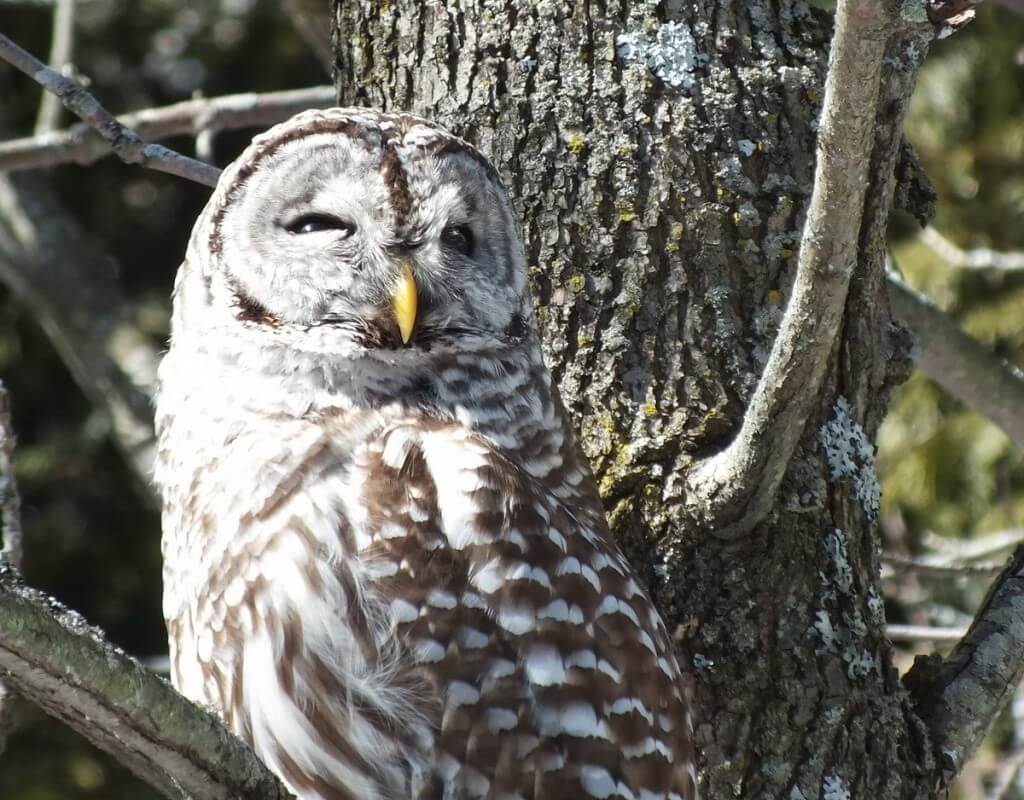
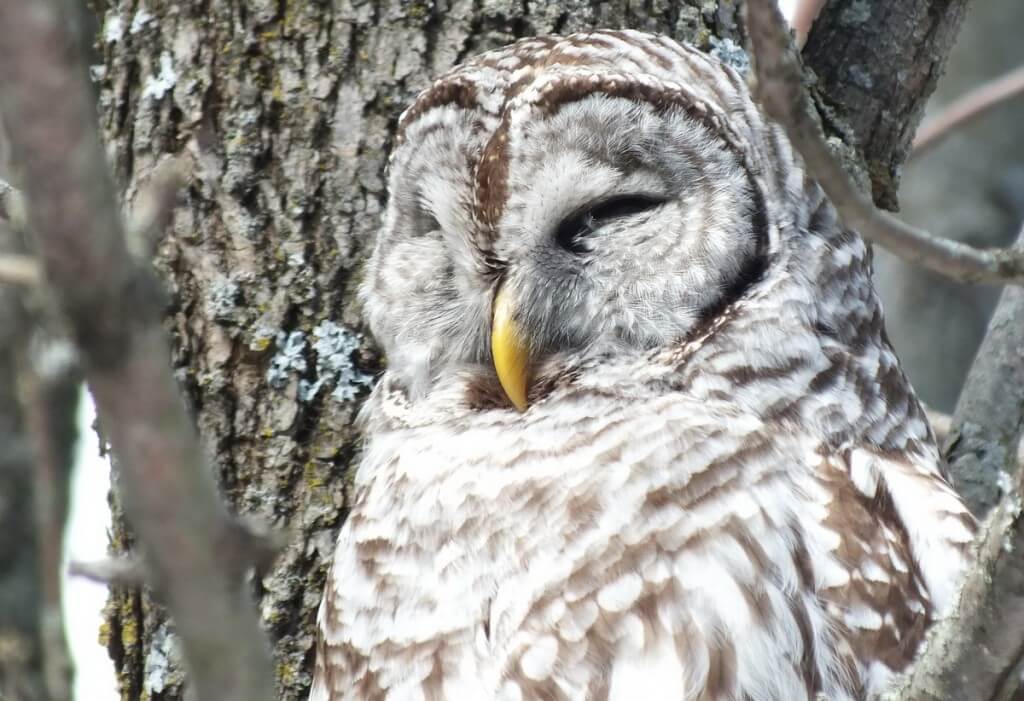
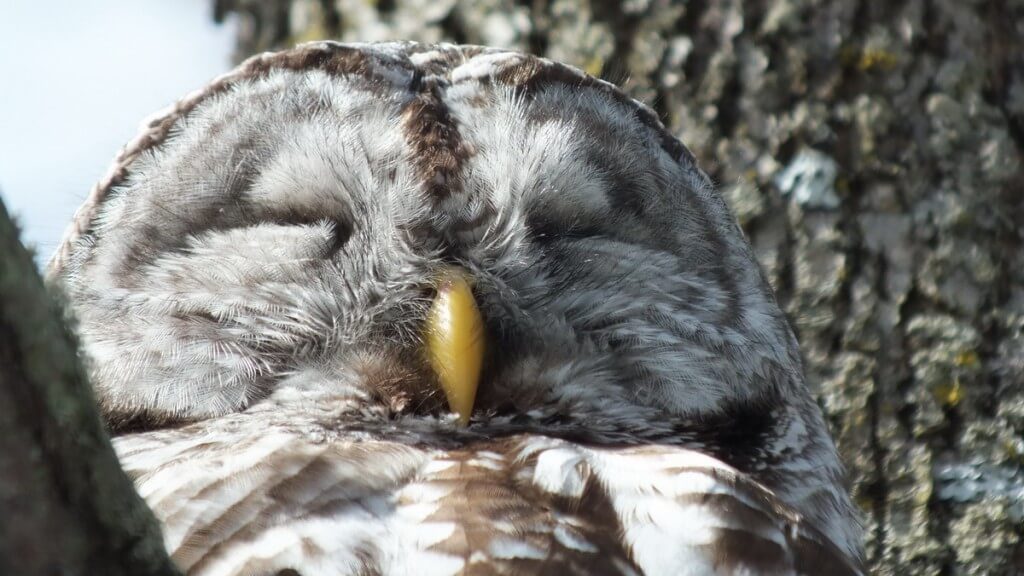
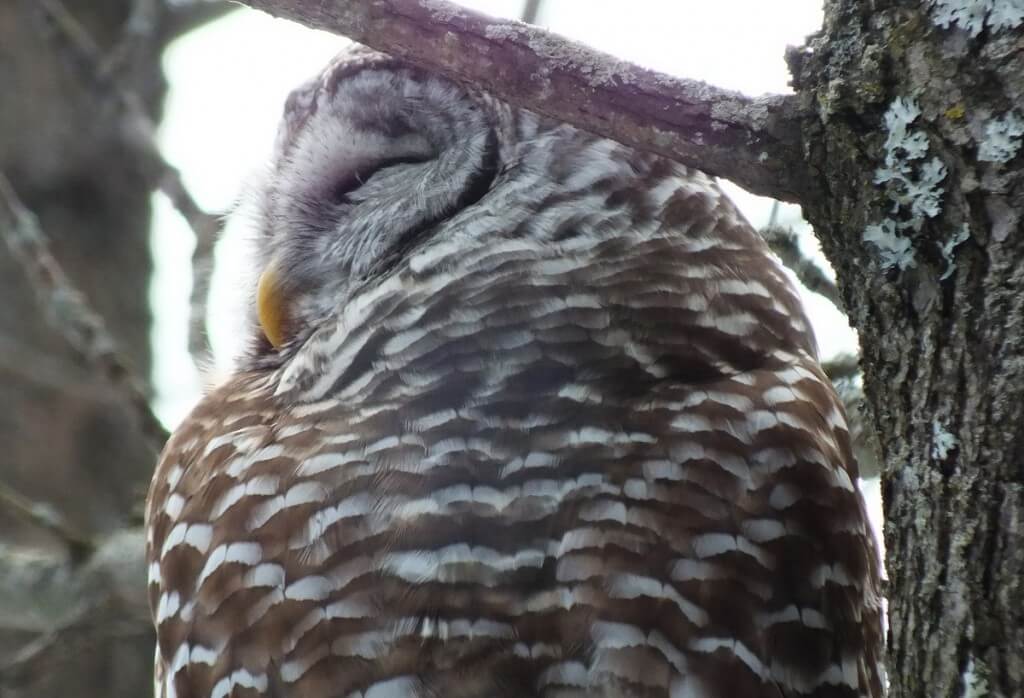
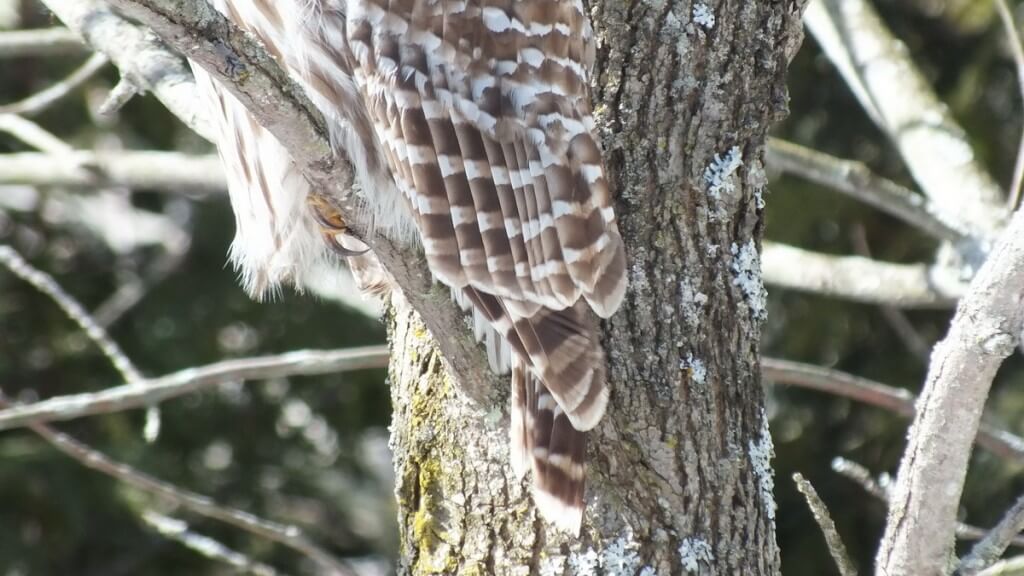
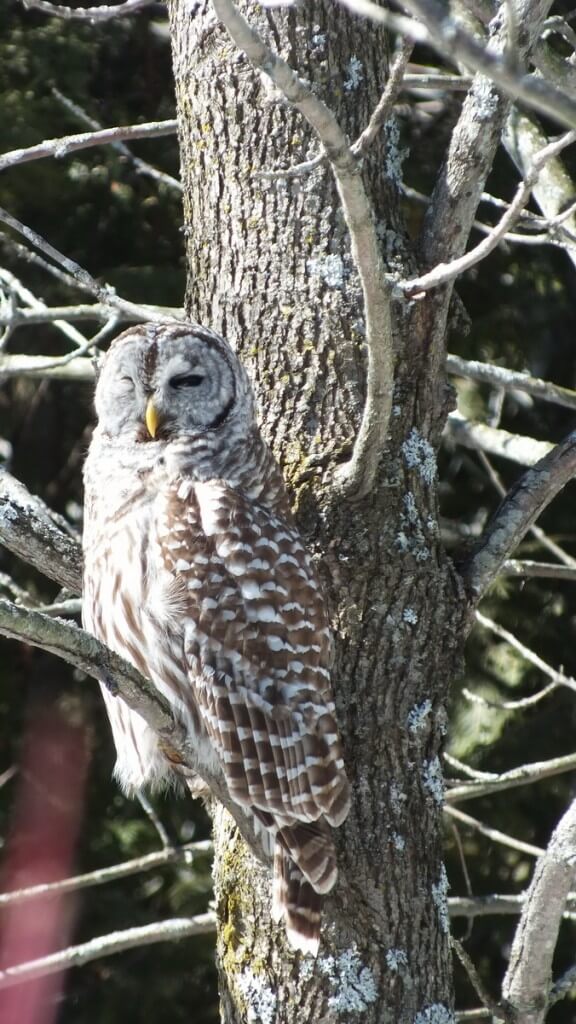
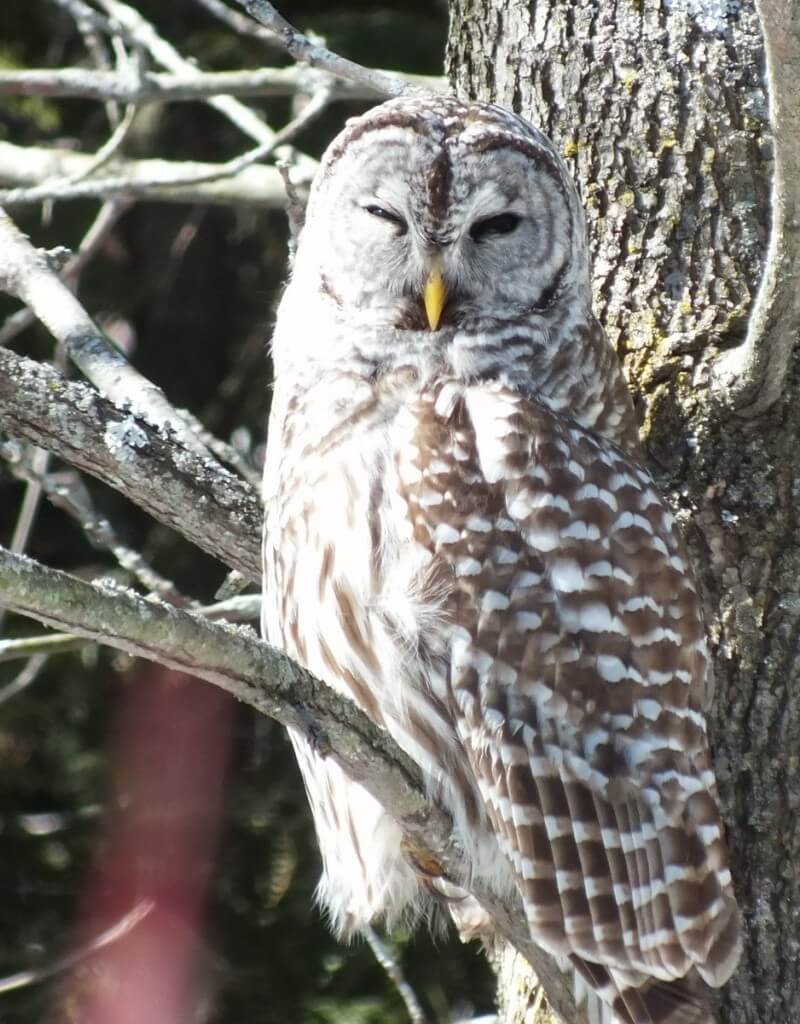
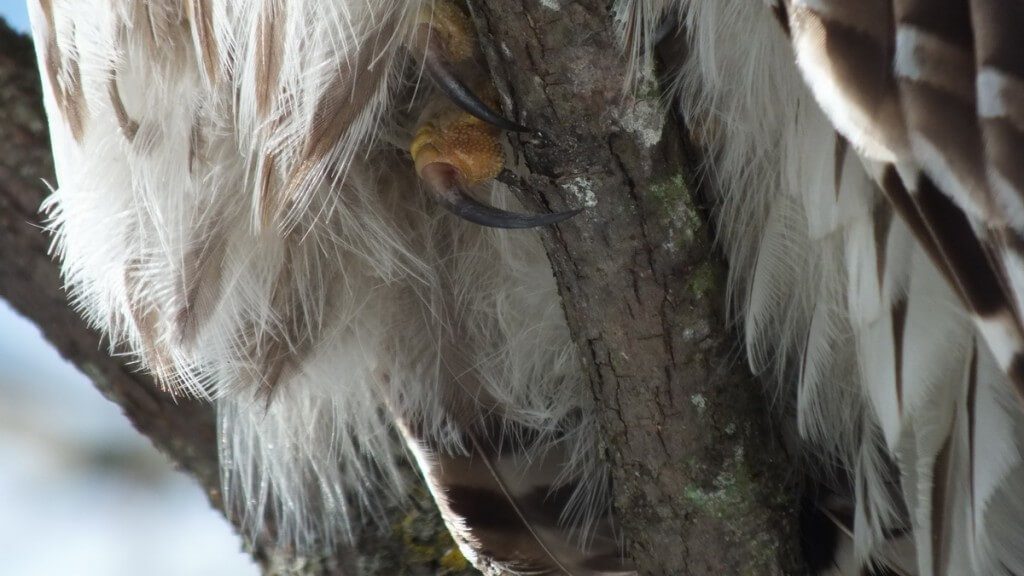
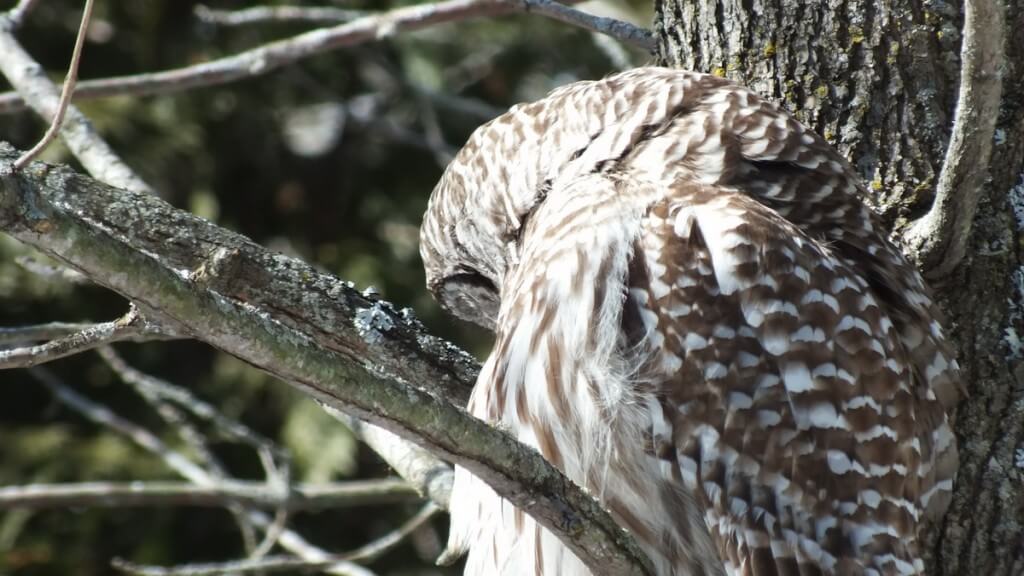



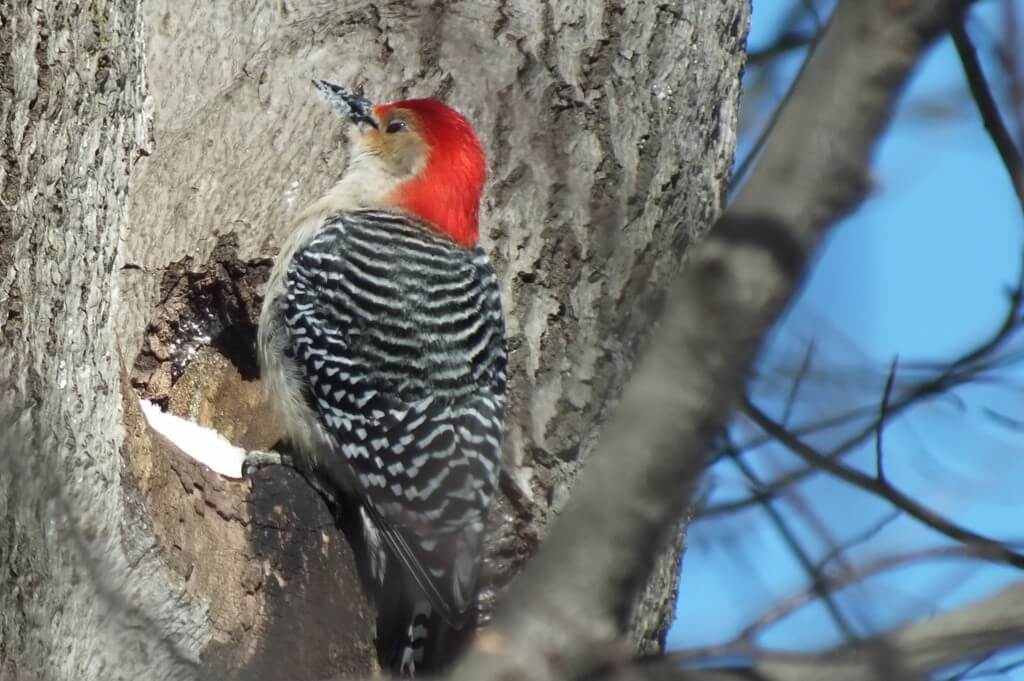



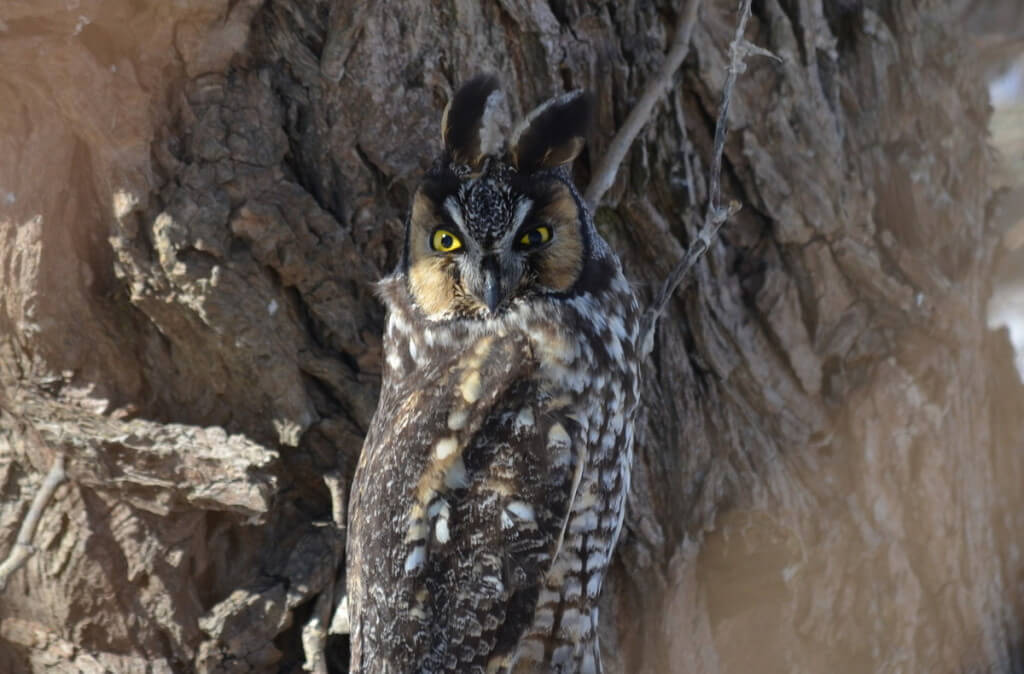

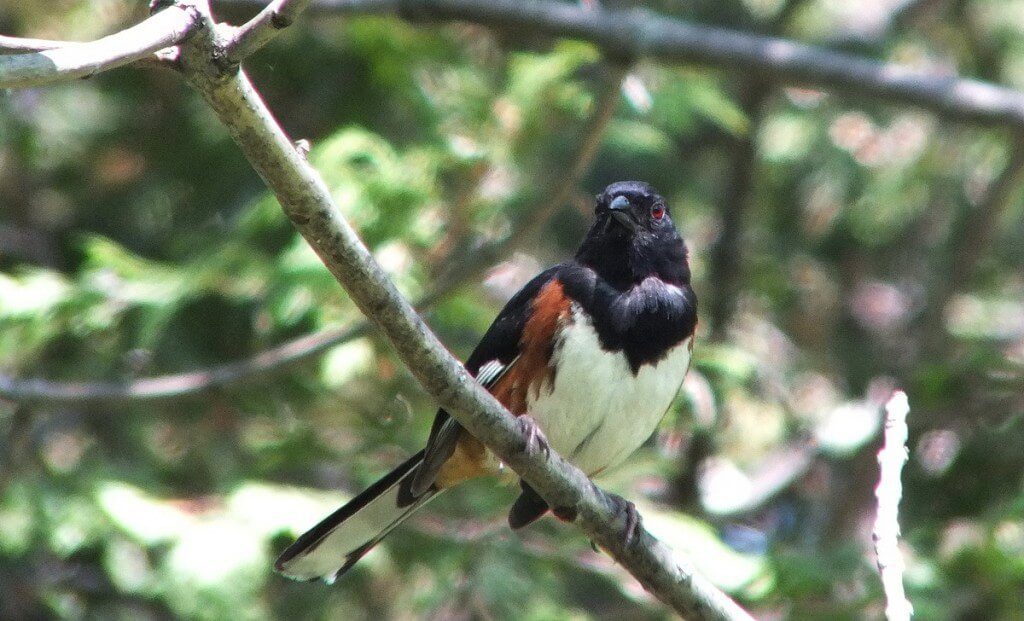

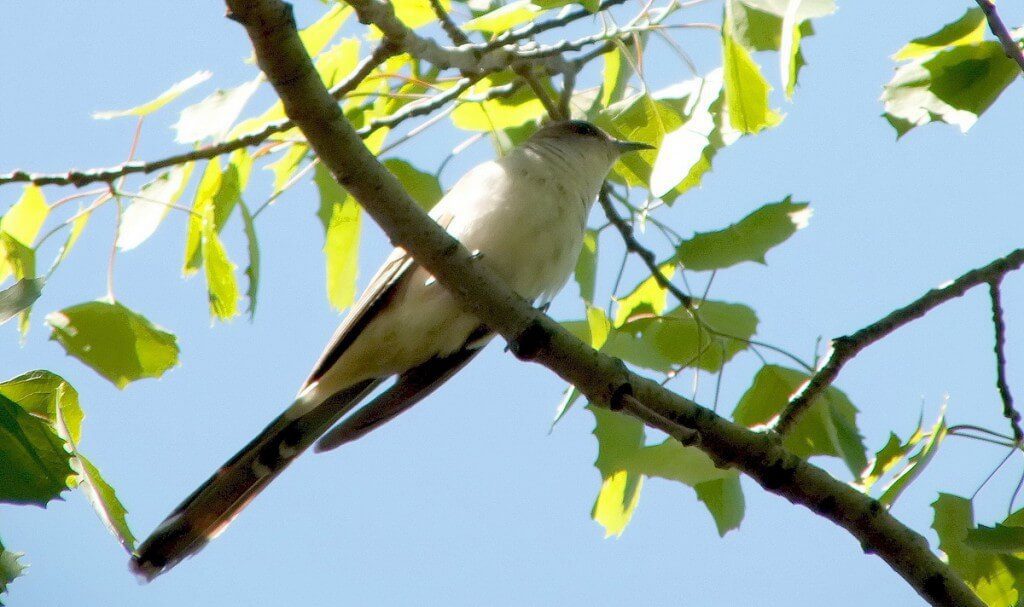

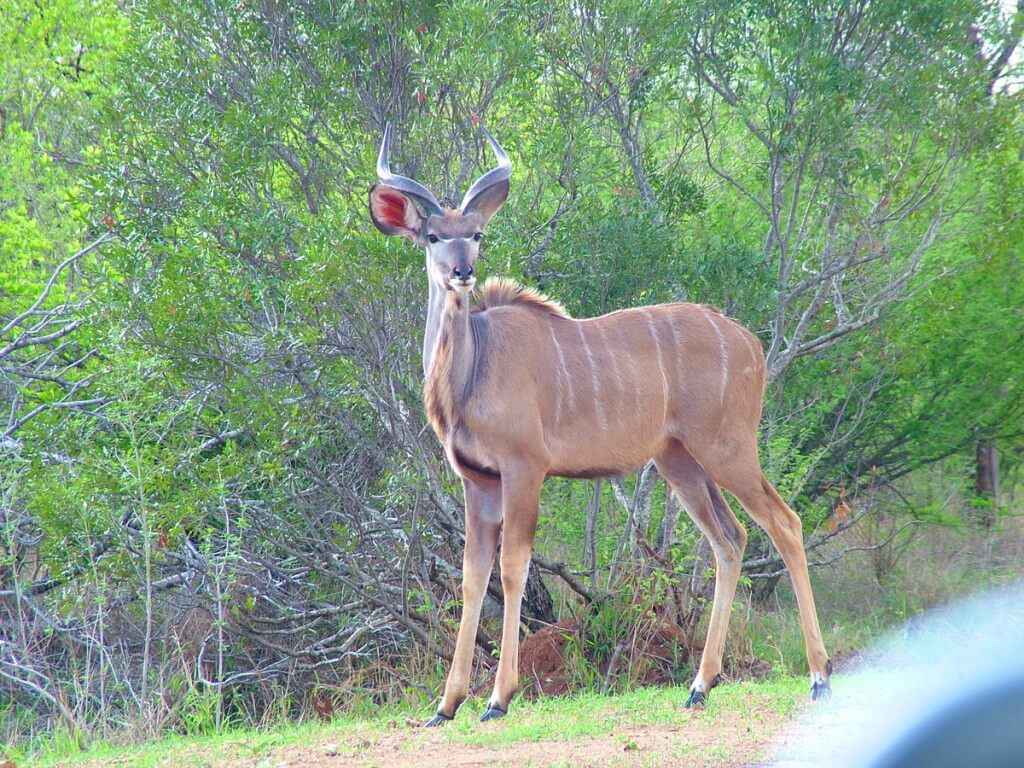


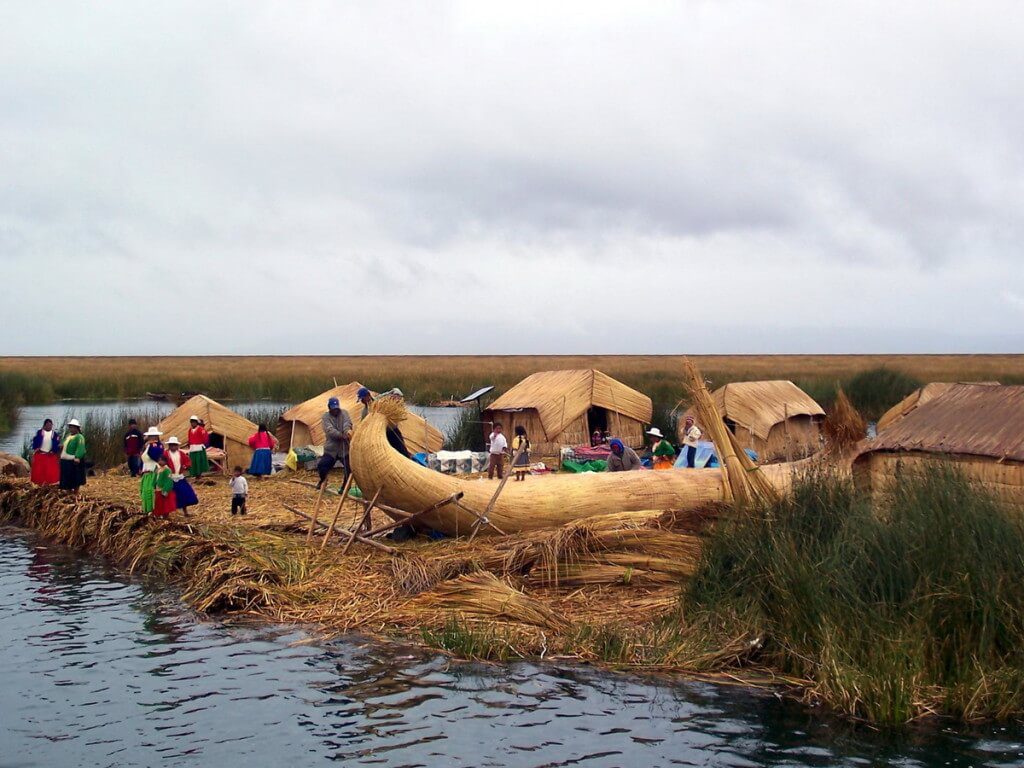




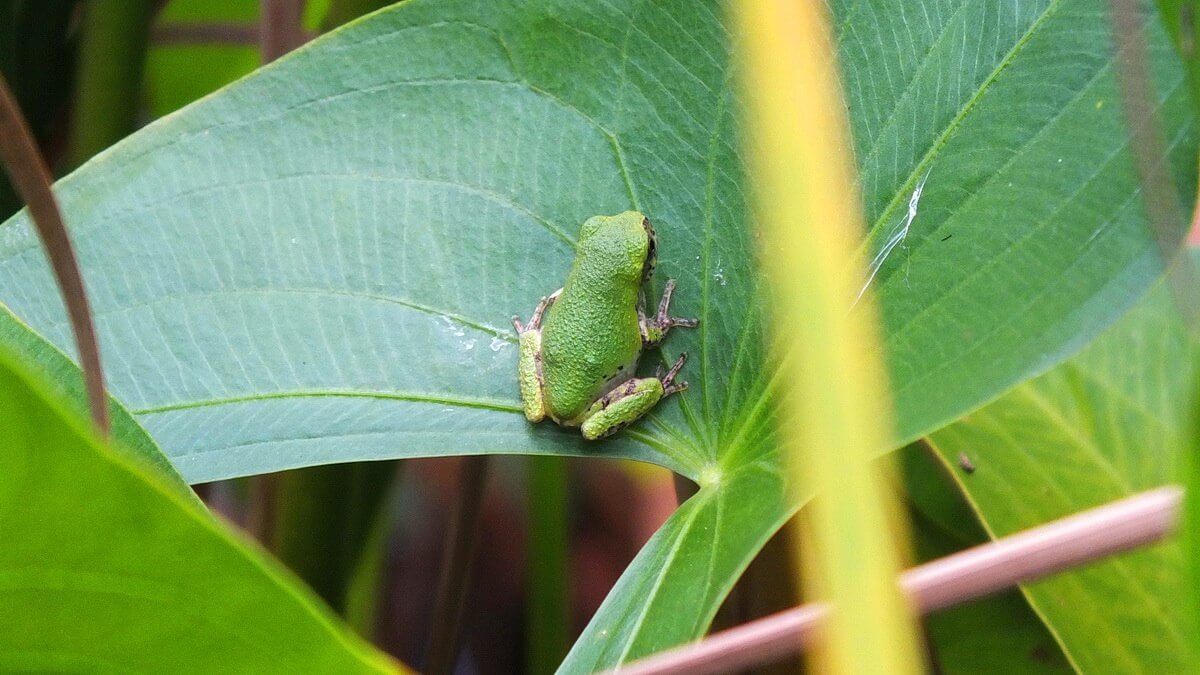
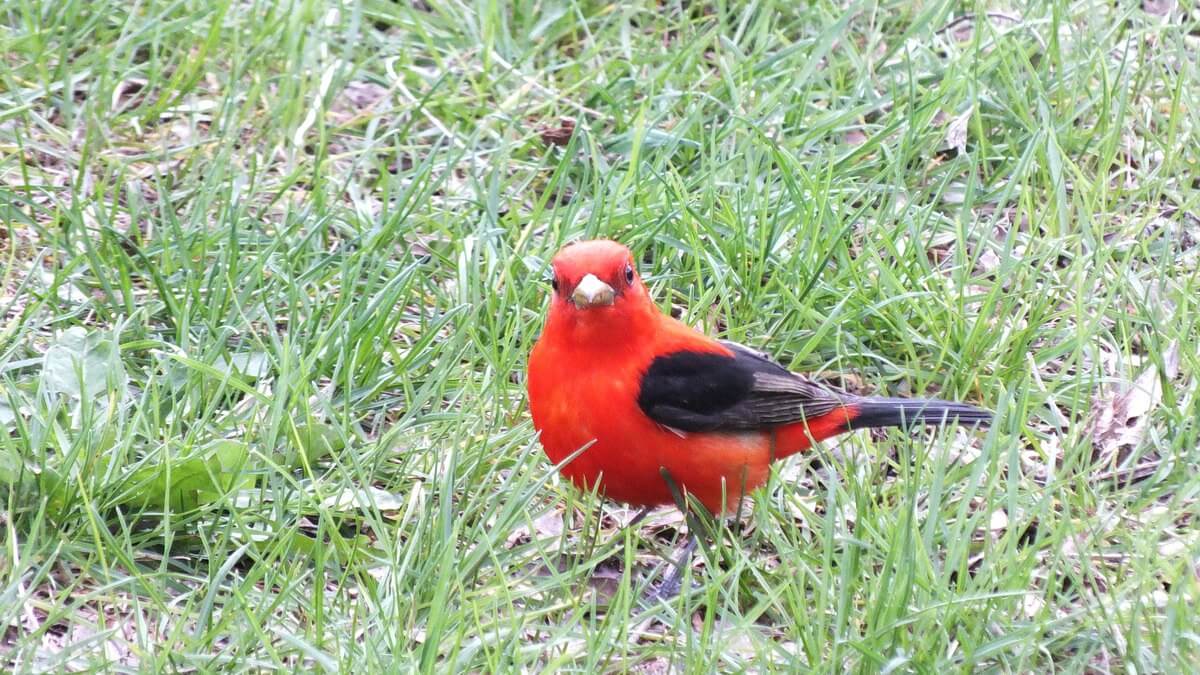
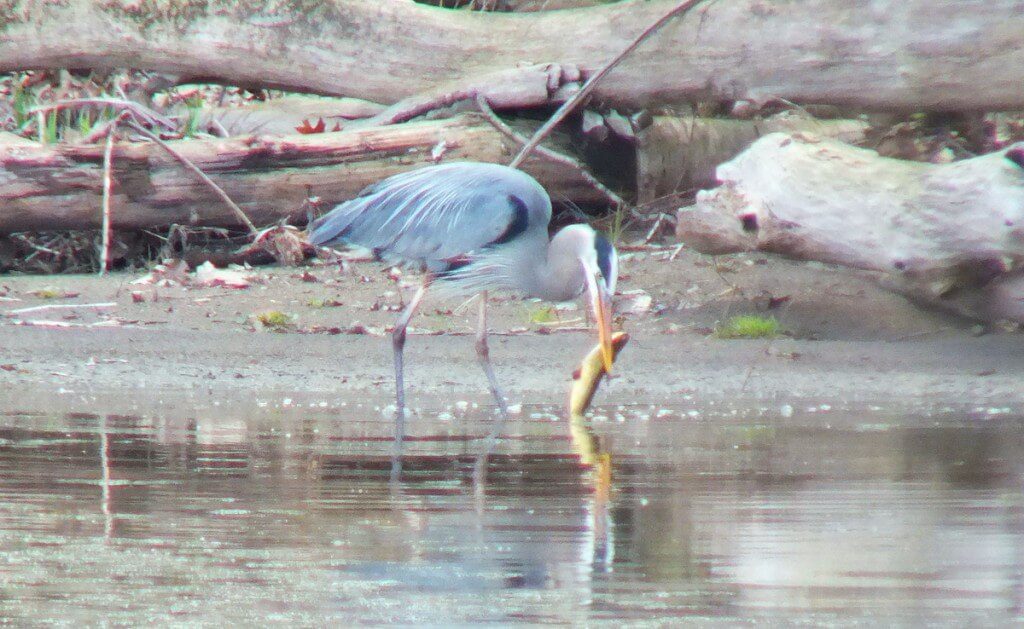
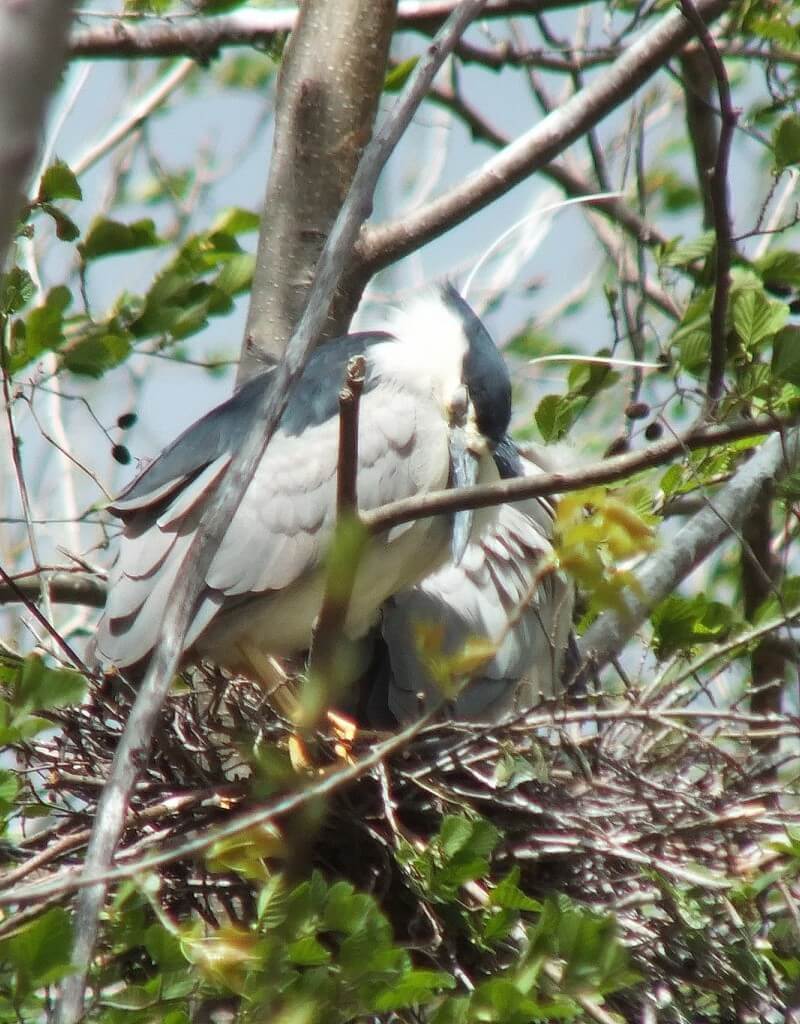
Barred owls started migrating from the East Coast in the 1950’s. They live in all types of mature forests, not just conifer. They are more generalists in what they prey upon, and have larger broods. Now they have moved into the old growth forests of the Pacific Northwest, where they are out-competing with the endangered northern spotted owl. What use to threaten northern spotted owls, was loss of habitat, now it is competition with the barred owls.
thanks for your comments. We spoke of the competition for habitat between Barred Owls and Northern Spotted Owls in one of our previous blogs. Bob and I have seen three Barred Owls in different locations in the past few months. You have helped us to understand why they are so prolific.
Also, northern spotted owls are specialist in their habitat, they want closed canopy old growth forests, and feed on mostly flying squirrels. Barred owls will take any type of mature forests, and feed on more of a variety of prey.
Thanks for sharing this.What a magnificent owl.As i watched the video i felt i was there observing it with you.
Thanks, Hazel. Bob and I do what we can do to advance peoples’ appreciation of and closeness to nature. This owl was very relaxed even though many photographers, families with children and even one dog walker was passing by. That is why we ventured to circle around behind the owl and get a good luck at its back and tail.